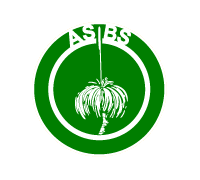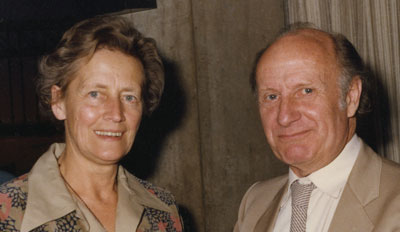
Marlies Eichler Postdoctoral Fellowship
The ASBS Council is pleased to be able to offer a postdoctoral funding scheme, the Marlies Eichler Postdoctoral Fellowship. The fellowship is named in honour of Marie-Luise (Marlies) Eichler, a life member of the Society, whose extraordinary generosity over many years made this funding possible. Fellowships were first offered under the scheme in 2017. Details of the fellowship is given below, with a link to the application form. Applications are due each year on 31 July. AimThese grants aim to support research in systematic botany and the career development of recent PhD graduates, by providing top-up funds to researchers already successful in attracting other postdoctoral support. Such top-ups are considered useful because many postdoctoral schemes are not fully funded, in terms of either salary or research costs, and this can limit the research and career opportunities of early career systematists. Providing strategic support to already successful early career systematists aims to facilitate quality research in systematics and also help recent graduates to capitalise on postdoctoral opportunities and improve their competitiveness for more permanent positions. EligibilityThese grants are for research projects focused on the systematics of land plants, algae or fungi. This can include studies of taxonomy, phylogeny and biogeography. Grants are open to applicants who meet the following criteria.
For the purpose of this Fund, Australasia is defined as the area including Australia, New Zealand, New Guinea (including Papua New Guinea and Irian Jaya), and the islands of Melanesia (including Fiji, Vanuatu, the Solomon Islands, and New Caledonia). Size and duration of grantsThe grant scheme will provide two years of funding. Up to $10,000 (AUD) per year is available, and a maximum of $20,000 over the two years. Funds can be spent on salary for the applicant or project costs (including consumables, essential minor equipment <$5,000, travel associated with fieldwork, contracted services such as DNA sequencing, technical assistance). Assessment criteriaApplications will be assessed by the Society's Research Committee, based on: research track record of the applicant, relative to opportunity (40%); merit of the research project (40%); and value for money (20%), which includes the value of the grant in supporting the activities of recipient, and the nature of additional research the grant will facilitate. TimingGrant applications will close on 31 July. Funding for successful applicants will commence from 1 November after the completion of necessary agreements, including the Society's standard grant conditions (available for download in Microsoft Word .docx format). Application formThe application form is available in Microsoft Word .doc format here. SubmissionCompleted applications can be submitted either as .pdf files by email (preferred) or in hard copy. They should be sent to the Vice President of the Society in time to meet the deadline.
|
